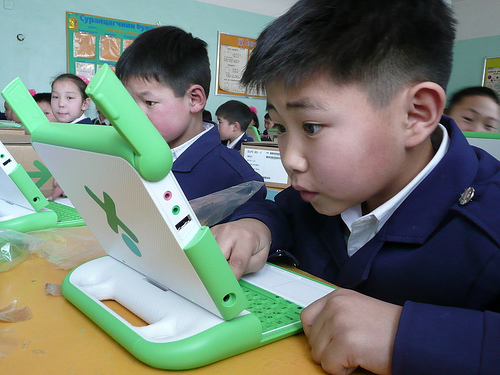 Take as much time as you need to laugh at how ridiculous the title of this post is.
Take as much time as you need to laugh at how ridiculous the title of this post is.
Once you’re done, come back to discover why it’s not so ridiculous.
I’m sure you’ve never come across a book that taught glass cups what to do when falling to the ground, or instructional videos that taught cats how to “meow”, but why do human beings need a guide to teach them how to be themselves?
Aren’t we all being ourselves already? After all, who else can we be?
The advice to “be yourself” isn’t as simple as many writers make it out to be. I included it in the 7 ideas that are probably ruining your life list for a reason: when a complex idea is dished out in a simplistic way, misunderstandings are likely to ensue.
If you are being yourself, is there any need for personal growth and character development? What are you developing towards?
I have come across many individuals who are disrespectful to others, and the only apology they can offer is to shrug and say: “I’m just being myself.”
But who are you?
What do you identify yourself with?
Are you the way you acted as a child? Or the hobbies you enjoyed as a teen? Or the subject you studied in college? Or the career you pursued as an adult?
Are you defined by what you eat? Or how you look? Or who you spend time with? Or how much money you have in your account? Or how many cars decorate your driveway?
Is it your sense of humor? Or the way you speak? Or the movies you enjoy watching? Or the way you handle stress?
Is it how you see yourself? Or how others see you?
Is it how you feel? Or what you think? Or what you do?
Is it the culture you belong to? The religion you believe in? The society you live in? The family name you carry?
If you are being yourself, then what happens when you seek to change? Are you compromising who you are?
There’s more to being yourself than… being yourself.
Who You Are
You are not your thoughts, but the one who thinks those thoughts.
You are not your feelings, but the one who experiences those feelings.
You are not your actions, but the one who chooses those actions.
You are not what people think of you or what you think of yourself.
Those are impressions based on past decisions you’ve made.
You are the one who decides what you think, what you feel, and what you do.
The one who chooses is You.
Identifying with your thoughts, feelings and actions strips you from your ability to choose, change and grow.
It makes you defensive and offensive.
It makes you vulnerable and aggressive.
To truly be yourself, you have to develop a healthy relationship with your thoughts, your feelings and your actions, so that you don’t see yourself as being those things, and overlooking the choice you are able to exercise.
What You Think
Authority figures rarely endorse freedom of thought.
Instead, they want others to blindly accept their convictions and values, and to lead their lives accordingly.
Politicians try to dictate what citizens can and can’t do.
Religious figures demand that their congregations not question the message delivered to them.
Teachers expect students to learn the material they are taught, and to keep their questions for their parents.
Parents teach their children to listen to them, because they know better.
We grow up relying on the thinking others have done on our behalf, without question.
That doesn’t mean that we no longer think.
Thinking is a necessary part of our lives. We’re always collecting information and processing it.
It does mean that we think within the worldview we were taught to believe is truth and according to the values we were brought up to accept as moral.
But we can’t make sense of our experiences on our own.
Being yourself means that you take on the responsibility to think for yourself, without feeling obliged to accept the beliefs and values of others.
Sure you can ask people for their opinions and insights, but you respect your own intellect and your own ability to evaluate the ideas that come your way.
What You Feel
Emotions are often perceived as a weakness, but that’s only because they are gravely misunderstood.
We cannot function properly as human beings without our emotions, both negative and positive.
What we feel indicates to us what thoughts are operating (often subconsciously) in our minds, and our feelings are a physical expression of our own values.
To condemn your feelings isn’t healthy. They’re only revealing what you think.
Rather than shun them or suppress them, listen to them.
What are they telling you? What can you learn from them about your thoughts and values?
When you feel angry, you are not the anger. You are the one experiencing the anger.
But why are you feeling angry in the first place?
Do you believe it’s the right emotion to convey, at the right time and to the right degree?
Here “right” doesn’t mean socially acceptable. It means that it supports your life and well-being.
If anger gets in the way of constructive communication, then it’s unhealthy. But if it compels you to confront injustice, then it’s healthy.
What matters is that you give yourself the space to feel and listen to your feelings, without judging or condemning yourself, or identifying with your emotions.
Emotions stem from thoughts and your thoughts are of your choosing. It is up to you what emotions you would like to cultivate, based on the thoughts you choose to have.
What You Do
What makes habits so difficult to change isn’t the habits themselves, but who we think we are, based on what we have done in the past.
If you’ve struggled to wake up early in the past, you may conclude that you’re “not a morning person.”
If you’ve acted violently towards others, then you may conclude that you’re “short-tempered.”
These labels you place on yourself dictate how you lead your life and what decisions you’ll make in the future, based on the decisions you’ve made in the past.
The implicit thought behind your decisions is: “If I was me, what would I do?”
And then you act according to that answer.
But that answer is your self-image. It’s not who you are.
Being yourself isn’t about embracing your self-image.
It’s about abandoning your self-image and realizing the ability you have to choose other behaviors, and develop different habits.
Again, you are the one that chooses. You are not the choice you make.
All the characteristics and labels you’ve placed on yourself, based on your past behaviors, only reveal how you’ve behaved in the past. They do not reveal who you are.
Just because you’ve made poor decisions in the past doesn’t mean you have to remain consistent with those decisions.
Such a commitment is a betrayal of yourself, since you’re abandoning your ability to choose.
How To Be Yourself
The default approach to take to “being yourself” is to go against what society expects you to do and rebel against The System.
But that’s the opposite side of the same coin: using society as a standard of how to live your life.
To be yourself, you need to embrace your own ability to choose your thoughts, your feelings and your actions.
You are willing to listen to others, but ultimately decide for yourself.
You can have strong convictions and remain open to accepting new ideas.
You can experience intense emotions and be willing to listen to them, or change them if they don’t serve your life.
You can act with passion and be able to evaluate your own behaviors, without falsely concluding that you are the decisions you’ve made in your past.
To be yourself, you create the space needed for you to consider the alternative options open to you, and to choose for yourself.
That’s what being yourself is about.
Photo credit: D Sharon Pruitt (a.k.a. Pink Sherbet)



